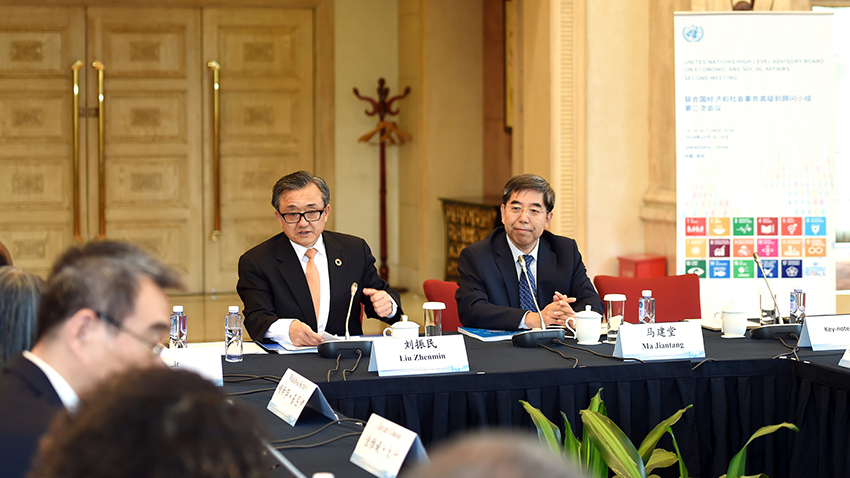Eminent economists and social scientists came together for the second meeting of the United Nations High-level Advisory Board (HLAB) on Economic and Social Affairs on 16-18 October.
They called for a more flexible intellectual property rights regime to facilitate technology transfers to developing countries, which will remain critical for reducing income inequality among countries, as envisioned in SDG 10.
“We have been trying to cultivate a good climate for market – we recognize that market is the key. At the same time, the government needs to create stable and friendly environment for business,” said Mr. Jiantang Ma, Minister and Senior Fellow of the Development Research Center of the State Council (DRC), as he shared his experiences in Chinese development in the context of an interconnected global economy.
Taking note of the fact that 10 years have passed since the great recession in 2008, the board members agreed that the world economy still faces significant downside risks, amid rising trade tensions and sharp depreciation of currencies of a number of large emerging economies. They called for building greater resilience to external economic shocks to developing countries, particularly the Least Developed Countries in Africa and Asia.
In this second meeting, taking place in Shenzhen, China, the board members were joined by distinguished guest-speakers from UNCTAD, as well as experts from DRC. The meeting was co-organised and co-sponsored by the China Center for International Knowledge and Development.

